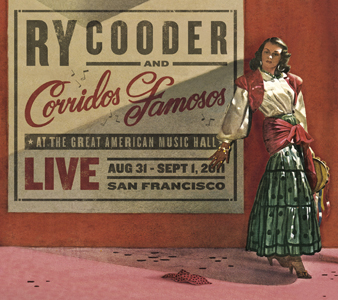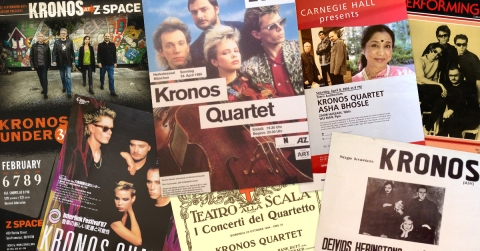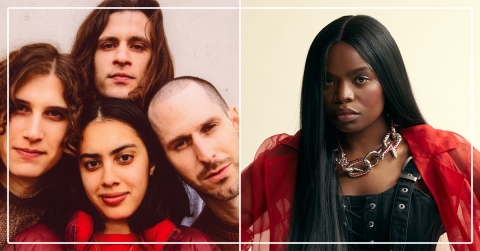Ry Cooder's first live record in more than 35 years, Live in San Francisco, is featured in an article from The New Yorker's Alec Wilkinson titled "Ry Cooder, Live Again." Wilkinson traces Cooder's career through his studio recordings—"Cooder’s catalogue, reflecting his capacious intelligence, is the broadest and deepest in popular music"—to the new live album. "The solos open like rooms, one into another," writes Wilkinson. "Some of the rooms are still as night, and in others the audience shouts like congregants cheering a preacher."
Ry Cooder's first live record in more than 35 years, Live in San Francisco, was released on Nonesuch / Perro Verde Records earlier this year to critical acclaim. The album was recorded in 2011 during a special two-night engagement with the Corridos Famosos band and a ten-piece Mexican brass band at San Francisco’s Great American Music Hall and features original songs and interpretations of other material ranging across Cooder’s entire career. The New Yorker's Alec Wilkinson has written about the album and much more in an article titled "Ry Cooder, Live Again."
In the article, Wilkinson traces Cooder's career from his early live performances to his more recent studio recordings, as he "continued to make records that were unique. Cooder’s catalogue, reflecting his capacious intelligence, is the broadest and deepest in popular music." Among those albums Wilkinson notes are the famed Buena Vista Social Club record; his "California Trilogy" of Chávez Ravine, My Name Is Buddy, and I, Flathead; and his most recent studio albums, Pull Up Some Dust and Sit Down and Election Special. Wilkinson also notes a shift in Cooder's voice over that time, such that "his singing now is joyful and open and unrestrained."
From early on in the album, at the start of one track, "Why Don’t You Try Me," "the hairs rose on the back of my neck," says Wilkinson. He concludes:
There is also a virtuoso piece, “Vigilante Man,” by Woody Guthrie, which Cooder plays on an elderly Rickenbacker guitar. He gets from the instrument a range of clicks and pops, humming harmonic overtones, and stinging, whiplike lines. The tone is growly and low, and his phrasing is terse and reserved and layered with emotions—loneliness, heartbreak, and the hopeless feeling of being abandoned by life. The solos open like rooms, one into another. Some of the rooms are still as night, and in others the audience shouts like congregants cheering a preacher.
Read the complete article at newyorker.com.
To pick up a copy of Live in San Francisco, head to the Nonesuch Store, where vinyl and CD orders include a download of the complete album at checkout, and the album is also available to purchase as MP3 and FLAC files.
- Log in to post comments



